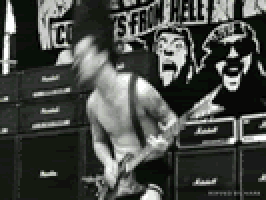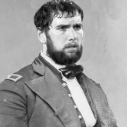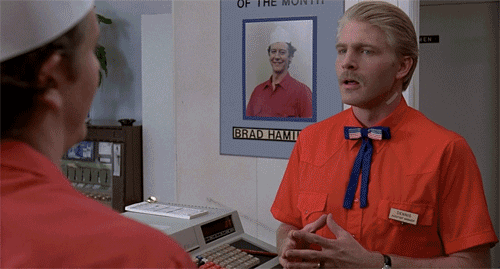All Activity
- Past hour
-
Big money ruining college sports has been solved; maybe
Js1 replied to Wally Fairway's topic in Football
You give him way too much credit for a symbolic nothingness. -
-
His last WWE appearance. So good.
-

Big money ruining college sports has been solved; maybe
Hayduke replied to Wally Fairway's topic in Football
I wouldn't write off its potential impact that quickly. For one thing, it already mirrors much of what the House seems to be trying to do with the SCORE Act, and I'm not sure that SCORE would generally be able to hold up well in court in different times. Now, with legislative and executive branches a little more aligned, it could have a lot more teeth. This is close enough to CR as it is, and I'm trying to stick more to general facts and avoid value judgments. But I think folks can agree -- regardless of where anyone is on the political spectrum -- that we're not operating under the same political rules this year that we were last year. We've already seen how this administration has reshaped, at least temporarily, the executive's ability to implement actual changes in things like the size of government departments, funding for science, and how DEI is implemented (in this case, no longer implemented) in educational settings. And universities, facing declining enrollments and unilateral cuts in scientific funding, consider themselves especially vulnerable to the will of the administration. If anyone here has been paying attention to the way Columbia, for instance, has approached pressure from the administration, it's pretty obvious that universities are very attentive to what the administration wants. Only a very few universities -- such as Harvard -- have fought back. The real questions come from how this will all play out with regard to the interactions among the administration, Congress, the NCAA, the big schools, the small schools, and both courts and lawyers. My guess is that between this order and SCORE, there will be more immediate shakeups than we anticipated, and even if folks try to dial it back a little when we get further down the road, the explosions will have already occurred and there will be a lot to clean up. -
-
Doesn't really clarify anything, but I think he says "tractors."
-

Elon Musk: Nazi traitor piece of shit [Confirmed]
Pig Bellmont replied to MaybeACoordinator's topic in Daily Texan
Perhaps that’s why he said he’d go to prison if Kamala was elected -
tbone_ started following Whites only settlement in Arkansas
-

Elon Musk: Nazi traitor piece of shit [Confirmed]
Brian Fantana replied to MaybeACoordinator's topic in Daily Texan
He should go to federal prison for the rest of his life for that, but he won't. -

Elon Musk: Nazi traitor piece of shit [Confirmed]
tbone_ replied to MaybeACoordinator's topic in Daily Texan
Simmer down, it only took one guy to whip all of their asses. -
I got high for my first, and so far only, MRI last week. Wasn’t bad at all.
-
Looks like it was just dug out from some rubble in the Los Angeles Palisades fire area.
-
From that article, netted out? Rural folk suck.
-

Epstein files update (there are no Epstein files)
austingirl replied to Gil Bang's topic in Cloak Room
He just wanted to be able to flee to the Cleve and club-hop down at the Flats and have lunch with Little Richard. -

Elon Musk: Nazi traitor piece of shit [Confirmed]
Brisketexan replied to MaybeACoordinator's topic in Daily Texan
What could go wrong with depending on an evil billionaire for access to one of the fundamental needs of modern society: communication? I swear to fucking God, we're just living out the plot lines of half a dozen different Bond villains, except we're elevating the villains to god status, and shitting all over anyone who dares ask "so....maybe we SHOULDN'T turn over all of society to an evil fuck with a volcano lair?" -
Better than Cornyn’s
-
In the span of three sentences you say: Trump will sell out ANYONE for his image/buck He is doing what he thinks is best for the country IN YOUR OWN FUCKING WORDS you admit that you see what we all do, yet the synapses in your brain force you to somehow try and spin it in a positive direction for the country because he wears the jersey of the political team you root for. Trump Derangement Syndrome is a real thing, but I suspect most would be disappointed to find out who is ACTUALLY inflicted with it.
-
Naah, it's too low-key and subtle. Also, all the royal and Hapsburg shit in Vienna really, really made me want to construct a guillotine and start beheading royals. Was an interesting impulse, revealing that I'm an American and fuck your kings all the way to my bones.
-
I wish I knew why UF never added beach volleyball. They were one of the schools that did a test for the viability of the sport for the NCAA but then never went through with forming the team after approval. It may have been a timing thing or a scholarship thing because by the time the NCAA decided to add it as a sport, UF was already adding Women's Lacrosse. It's probably the scholarship thing. Foley was always trying to get us on the right side of Title IX. Guess that's all pretty much been dismantled now.
-
Friday By Bobby Burton The president of the United States issued an executive order yesterday regarding the future of college sports. The main tenets included eliminating pay-for-play schemes, the future of student employment, Title IX guidance, saving non-revenue sports, and reducing long-term liability of the institutions. I’ll briefly hit on each of these topics below. But before I do, I want to say this: Executive orders are largely performative. What I mean by that is, the orders attempt to set direction for others, from the attorney general, to other members of the president’s cabinet. But they are not the rule of law. In other words, the president can’t unilaterally make the rules, not in the case of the NCAA. The president can’t waive a wand and make collectives illegal or grant anti-trust exemption to the NCAA. Only legislative bodies (i.e. congress) can do that. Then the courts rule on their legality. Here are the topics: - Pay-for-play: the executive does not call out collectives specifically, only that he wants any payments to athletes being purely for brand purposes. Well, pay-for-play has technically already been illegal in the NIL era. The collectives are paying athletes for their brand. So how this could effect NIL and the future of it is murky at best. - Student-employment: by addressing this, the EO seems to favor keeping students as non-employees. - Title IX guidance/non-revenue sports: the EO invokes the desire to keep US Olympic sports competitive as a primary basis for the importance of these two issues. Title IX will be tricky, but the importance of non-revenue sports has been more than adequately addressed in the House vs NCAA settlement. The EO just wants to make sure no scholarships or opportunities are diminished and the House Settlement handles that. - Long-term liability: this is where there could be real value extracted potentially by NCAA member schools IMO. If the NCAA does not have to worry about infringing on the rights of its players when enacting rules, they can rule with more of an iron fist without as much fear of student retribution via future lawsuits. Some equate this to the possibility of an anti-trust exemption. In all, the executive order is not a game-changer. It is just another piece of the puzzle we are all wading through to get to a final resolution, which in my mind, remains years away.
-
https://www.tallahassee.com/story/news/local/2025/07/24/chuck-e-cheese-arrest-by-tallahassee-police-photos-video/85355422007/ Damn they got Chuck-e but the hamburglar is still free.
-
Friday By Bobby Burton The president of the United States issued an executive order yesterday regarding the future of college sports. The main tenets included eliminating pay-for-play schemes, the future of student employment, Title IX guidance, saving non-revenue sports, and reducing long-term liability of the institutions. I’ll briefly hit on each of these topics below. But before I do, I want to say this: Executive orders are largely performative. What I mean by that is, the orders attempt to set direction for others, from the attorney general, to other members of the president’s cabinet. But they are not the rule of law. In other words, the president can’t unilaterally make the rules, not in the case of the NCAA. The president can’t waive a wand and make collectives illegal or grant anti-trust exemption to the NCAA. Only legislative bodies (i.e. congress) can do that. Then the courts rule on their legality. Here are the topics: - Pay-for-play: the executive does not call out collectives specifically, only that he wants any payments to athletes being purely for brand purposes. Well, pay-for-play has technically already been illegal in the NIL era. The collectives are paying athletes for their brand. So how this could effect NIL and the future of it is murky at best. - Student-employment: by addressing this, the EO seems to favor keeping students as non-employees. - Title IX guidance/non-revenue sports: the EO invokes the desire to keep US Olympic sports competitive as a primary basis for the importance of these two issues. Title IX will be tricky, but the importance of non-revenue sports has been more than adequately addressed in the House vs NCAA settlement. The EO just wants to make sure no scholarships or opportunities are diminished and the House Settlement handles that. - Long-term liability: this is where there could be real value extracted potentially by NCAA member schools IMO. If the NCAA does not have to worry about infringing on the rights of its players when enacting rules, they can rule with more of an iron fist without as much fear of student retribution via future lawsuits. Some equate this to the possibility of an anti-trust exemption. In all, the executive order is not a game-changer. It is just another piece of the puzzle we are all wading through to get to a final resolution, which in my mind, remains years away.
Football ... Basketball ... Baseball ... Other Sports ... Futbol ... 🤫995🤫 ... Gambling ... Movies & TV ... Music ... Hobbies ... Lulz ... Food & Travel ... Daily Texan ... Business and Markets ... Cloak Room ... Help ... For Sale ... Board Discussion ... Subscribe!... Donate!... COOKIE MONSTER!












